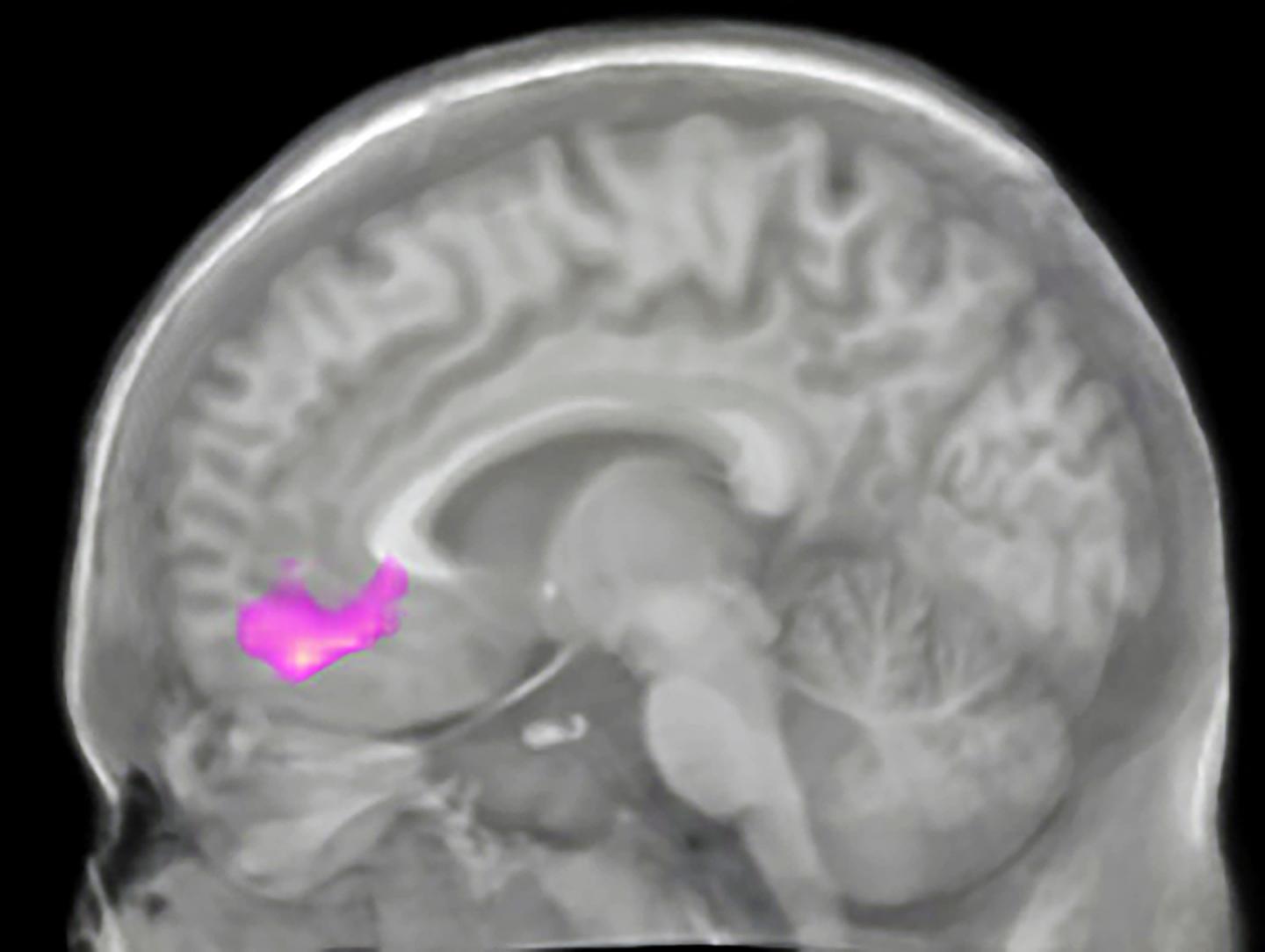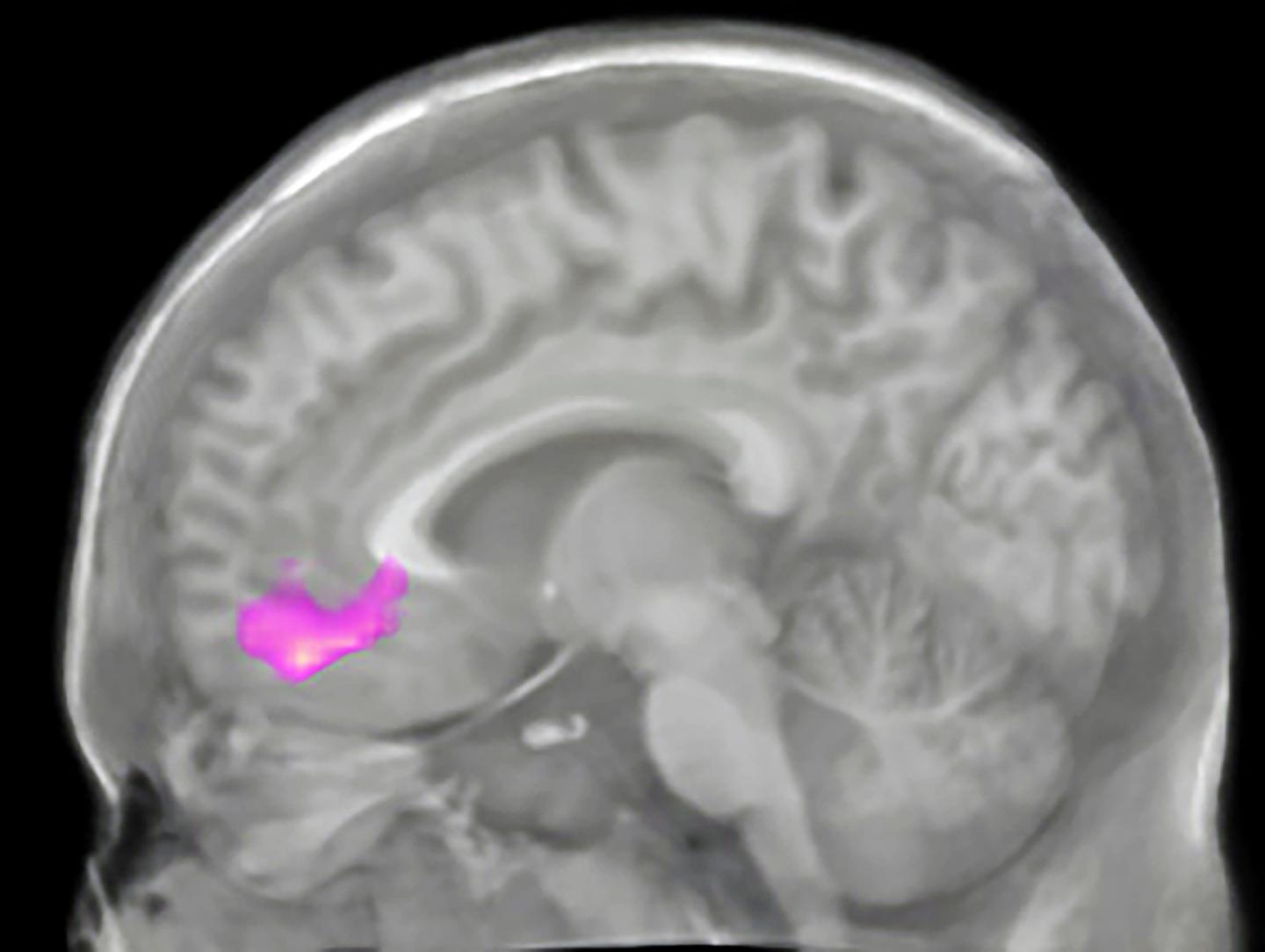
Credit: Courtesy of Christina Karns
EUGENE, Ore. – Dec. 14, 2017 – Gratitude does more than help maintain good health. New research at the University of Oregon finds that regularly noting feelings of gratitude in a journal leads to increased altruism.
The study, published in the journal Frontiers in Human Neuroscience, sought to determine whether personal altruistic traits could be increased with a writing intervention.
Initially, participants were assessed through questionnaires and brain scanning by magnetic resonance imaging. During their first run through the MRI, the participants viewed transactions in which a sum of money was donated to a local food bank or routed to themselves.
"We found that across the whole group at the first session, people who reported more altruistic and grateful traits showed a reward-related brain response when the charity received money that was larger than when they received the money themselves," said Christina M. Karns, director of the UO's Emotions and Neuroplasticity Project in the Department of Psychology.
Results of functional MRI, which measures the metabolism of oxygen in active brain cells, showed that altruism-related activity increased in the ventromedial prefrontal cortex, an area deep in the brain associated with altruism in previous studies, including one led by study co-author Ulrich Mayr that found increases in pure altruism as people grow older.
Next, to test the journaling intervention, the 33 women, ages 18-27, who participated in the study were randomly assigned to two groups. In one, 16 wrote daily in an online journal, responding to prompts with questions related to gratitude. The other 17 received neutral daily prompts not focused on gratitude.
Three weeks later, the participants returned for functional MRI scanning as they repeated the questionnaires and viewed transactions of money going to the food bank or themselves.
"We found that activity recorded in the ventromedial prefrontal cortex shifted in the people in the gratitude-journaling group," Karns said. "This group, as a whole, increased that value signal toward the charity getting the money over watching themselves get the money as if they were more generous toward others than themselves."
Research on positive thinking and practicing gratitude previously has shown benefits to improved health and general well-being, but the new research, Karns said, was designed to explore gratitude with a philosophical perspective. This perspective emphasizes more than gratitude's benefit to oneself, focusing on the downstream benefits of gratitude to others in society.
To do that, she used a variety of questionnaires to discreetly explore the participants' feelings about altruism, combining then with the transaction-viewing exercise developed by the co-authors for use in earlier studies.
The new study's results indicate, Karns said, that the part of the brain that supports feeling a reward is flexible, allowing for changes in values of a "neural currency" linked to feelings of altruism.
"Our findings suggest that there's more good out there when there is gratitude," Karns said.
Whether the changes brought about by gratitude journaling endure and are realized more generally are open questions, Karns said. For example, the study focused on only women to reduce variables related to gender.
"I would like to do a longer-term study with more people to see how this holds up in the real world," she said. "I would love to have a large enough sample to see if there are gender differences and how they manifest. Does this feeling last? How often do you have to journal to be most effective?"
###
The research was supported by grants to Karns from the Expanding the Science and Practice of Gratitude Project through the Greater Good Science Center, in partnership with the University of California. Karns also received support from the Lewis Center for Neuroimaging at the University of Oregon and The Templeton Religious Trust via the Institute for the Study of Human Flourishing at the University of Oklahoma.
Former UO doctoral student William E. Moore III, now a postdoctoral researcher at Harvard University, was a co-author on the study.
Source: Christina Karns, research associate, Department of Psychology, 541-346-4261, [email protected]
Note: The UO is equipped with an on-campus television studio with a point-of-origin Vyvx connection, which provides broadcast-quality video to networks worldwide via fiber optic network. There also is video access to satellite uplink and audio access to an ISDN codec for broadcast-quality radio interviews.
Links:
The study: https://www.frontiersin.org/articles/10.3389/fnhum.2017.00599/full
About Karns: https://bdl.uoregon.edu/research/people/staff/christina-karns/
Emotions and Neuroplasticity Project: https://projectpos.uoregon.edu
Department of Psychology: https://psychology.uoregon.edu/
Previous research by Ulrich Mayr on pure altruism across the lifespan: http://around.uoregon.edu/content/uo-team-finds-signs-pure-altruism-brain
Media Contact
Jim Barlow
[email protected]
541-346-3481
@UOregonNews
http://around.uoregon.edu
Related Journal Article
http://dx.doi.org/10.3389/fnhum.2017.00599





